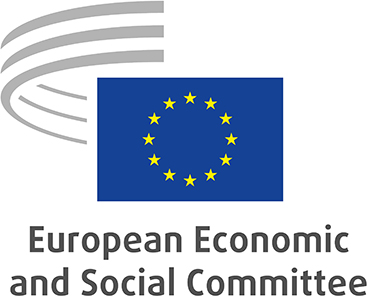On April 27, the European Economic and Social Committee (EESC) approved its opinion on ‘The role of social economy in the creation of jobs and in the implementation of the European Pillar of Social Rights’, whose rapporteur is Giuseppe Guerini (President of CECOP). The document is an exploratory opinion requested by the Portuguese Presidency ofthe Council.
In its Conclusions and recommendations, the EESC is grateful to the Portuguese presidency for requesting this opinion, and considers it important to view the various bodies making up the social economy as strategic partnerin implementing the European Pillar of Social Rights and in building a European Union that reaffirms that the main function of the economy is to serve people.
To that end, it recommends that, in their national recovery and resilience plans for emerging from the pandemic crisis, Member State authorities provide for a broad involvement of social economy bodies.
The EESC considers it necessary to consolidate the operational criteria adopted by the EU institutions to promote proper recognition of social economy organisations and enterprises, in their various legal forms.
These criteria require that social objectives of general interest take precedence, that democratic governance involving a range of stakeholders be adopted, and that even when “limited profitability” is achieved, this is used to help pursue their statutory objectives.
In order to measure the social impact created by social economy organisations and enterprises, the EESC considers it necessary for the European Union to have a permanent statistical mapping systemthat will enable it to have suitable comparable and up-to-date data on the size and impact of the sector.
The EESC believes that, when the role of the social economy in creating and maintaining employment involves disadvantaged workers and disadvantaged areas, appropriate support policies are needed. These support policies are needed at four levels: tax policies; policies to promote public and private investment that fosters the development of social-impact finance – including by harnessing public procurement and concessions; policies to support the stable employment and economic leadership of workers in social economy enterprises; and policies to support the skills level of staff and technological innovation in social economy organisations.
With regard to creating and maintaining jobs, the EESC believes that the formula known as worker buy-outs is a good practice not only for re-launching companies in crisis but also for transferring SMEs whose founders have no successors. To this end, it might be worth setting up a specific European investment fund.
The EESC believes that the form taken by social economy enterprises may make them ideal for new kinds of digital-platform-based entrepreneurshipand in particular for sharing-economy activities, given their propensity to actively involve the workers and the users of digital platforms.
It believes that social economy organisations, and in particular voluntary associations, are fundamental to cohesion, nurturing social capital and supporting the responsible role played by civil society.
Volunteering among young people is a key resource for increasing the employability and human capital of the new generation, creating a positive effect that increases employment opportunities. This would also appear useful for reducing the phenomenon of NEETs and it would be worth putting in place policies to facilitate the transition from volunteering to stable forms of paid employment.
Finally, the EESC advocates and hopes in its new opinion that the Action Plan for the Social Economyprovides the opportunity to deploy operational tools and practical legislative proposals.







